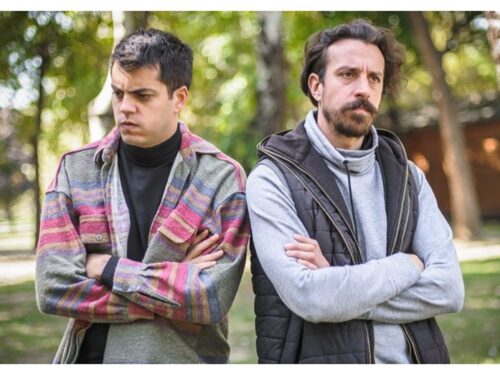
Relationships are at the heart of everything, even (or especially) in business. But good relationships take work to build and develop. And unless you have put in that work, you can’t assume your colleagues and employees will automatically trust and respect you. Your relationships function better when you’ve invested some relational capital. Imagine how different Luke Skywalker’s response to Darth Vader might have been if Vader had taken him to at least one ball game before announcing he was his father. You may not be battling for the fate of the galaxy in your career, but you might still find yourself lacking the support and respect of others if you aren’t giving it away first.
The Importance of Respect in Building Relationships
In our new book You, Me, We: Why We All Need a Friend at Work (and How To Show Up As One!) we discuss the necessity of building ally relationships at work using the Ally Mindset, a model for being a best friend at work. The Ally Mindset encompasses five essential practices, each based on the assumption that you are ready to build mutual respect, the kind created by genuine trust and care. So, how do you know whether you’re developing the kind of trust and connection that builds mutually respectful relationships? We’re glad you asked! The answer (drum roll, please) is to ask more questions, specifically the Four Yeses.
The Four Yeses
The Four Yeses are questions we all ask ourselves in every relationship. The answers to these four questions tell you if you can trust a person and if they care about you. Conversely, when you intentionally choose to be a “Yes” to these questions for someone else, you communicate trustworthiness, care, and respect at the highest level.
1. Can I count on you?
2. Can I depend on you?
3. Do I care about you?
4. Do I trust you?
1. Can I count on you?
This question is the bare minimum for building trust. As the starting point for mutually respectful relationships, it’s purely transactional. It’s the DWYSYWD— do-what-you-say-you-will-do concept. Following through on your commitments not only communicates that you will keep your word (an important step in gaining respect) but also that you respect the other person enough to do so. Your choice to honor an agreement speaks volumes about how valuable that relationship and the other person are to you.
2. Can I depend on you?
If you want to build a stronger relationship, this question is the proactive next step. It’s going beyond the normal give-and-take of any job to invest time and energy in the other person’s success by being available for them when they need help (even if it has nothing to do with your job). Keeping your word is vital for any professional relationship but stepping up when things are messy or in crisis with real, tangible support begins to add the “ally” to your ally relationships. My trust and respect for you deepen when you become the person I can depend on when things go haywire.
3. Do I care about you?
When was the last time you asked someone at work how they were doing, not just what they were doing? If you can’t remember the answer, you’re probably not being a “Yes” to this question.
Questions three and four move beyond the transactional parts of your relationship to the transformational. You don’t just support the people around you in their work; you become present in their lives. When your colleagues and peers know you value them as individuals (not just cogs in the machine), you’ll develop mutual trust and connection. And when trust and connection are both present, respect grows exponentially.
4. Can I trust you?
The pinnacle of the Four Yeses is being the person others can trust implicitly, not just as a co-worker but as a friend. It’s building an environment of connection and belonging that transforms your relationships into friendships. This kind of trust is intrinsically intertwined with connection. In an HBR article based on data from 87,000 leadership assessments, the authors found three key elements of trust – relationships, judgment, and consistency. Guess which one impacted trust the most? (Hint: It starts with “R” and rhymes with “-elationships.”)
Trust and connection run on the same track, but they don’t magically happen (not even if you use the Force). You have to build them, and that means giving trust to others first and respecting their ability to honor your trust (even if you’ve just met them). It also means being human with the other person- asking questions, communicating openly, and (our personal favorite) having fun together! If you want to trust and be trusted, then every workday should be “Bring Your Human to Work Day.”
Trust + Connection = Respect
It takes work to build trust and care through the Four Yeses. But when you choose to go first and invest relational capital in the people around you, you’ll find that respect naturally develops right alongside your ally relationships. And when you have relationships where trust, connection, and respect flow freely, your work becomes lighter, and we all become #bettertogether.
Morag Barrett is the Founder and CEO of SkyeTeam, dedicated to helping leaders achieve outstanding results through the power of their professional relationships. She is the co-author, along with Eric Spencer and Ruby Vesely of the new book, You, Me, We: why we all need a friend at work (and how to show up as one) youmewebook.com




